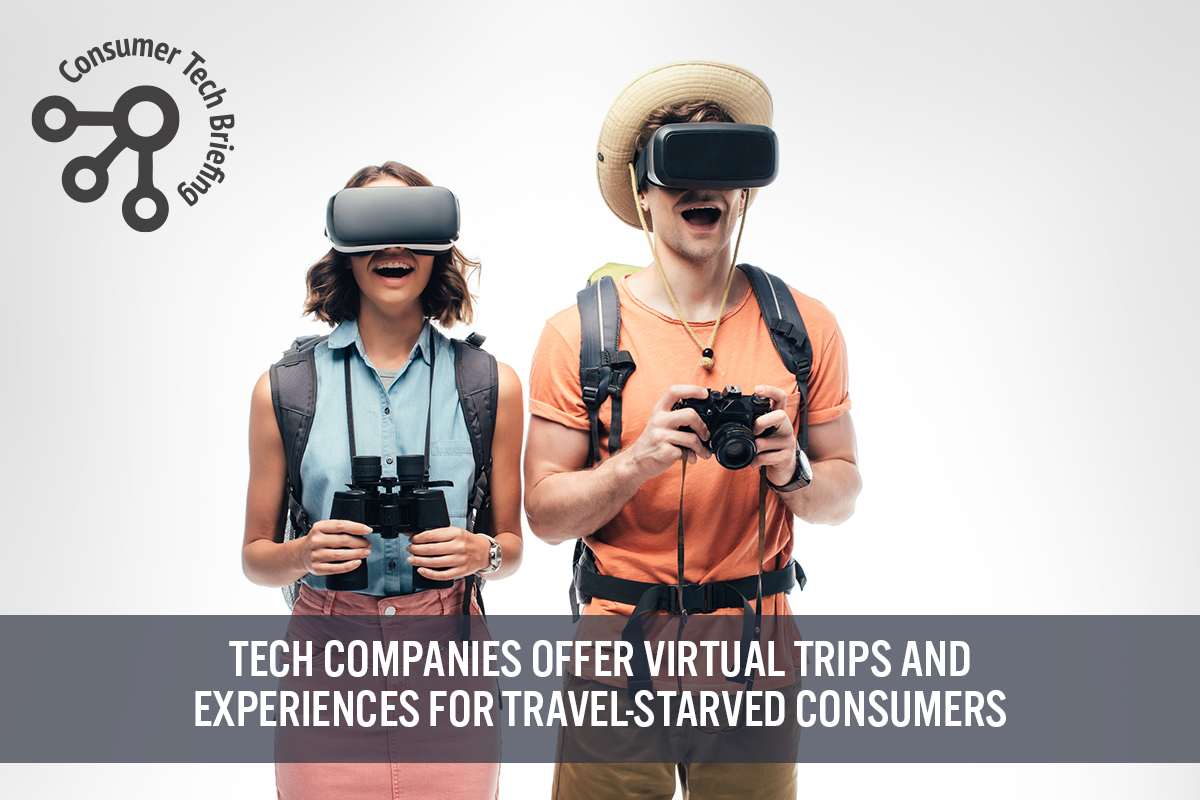
albert Chan
Each month our Consumer Tech Briefing discusses recent developments in the world of technology. This month we focus on recent launches and developments by tech companies to provide interactive virtual travel experiences for housebound travel enthusiasts.
What’s the Story?
As the pandemic continues, consumers remain cautious about leisure travel and booking holidays. In this context, tech companies are coming up with new innovations to keep stay-at-home consumers entertained and provide real-time virtual travel experiences. In this report, we discuss a recent partnership between Airbnb and Brand USA, as well as the launch of virtual travel platforms by Amazon and Proxgy.
Why It Matters
The pandemic prompted many consumers to change their leisure travel plans. According to a US survey conducted by Coresight Research in July, half of all respondents said that they do not expect to travel at all for leisure for the remainder of 2020, four in 10 canceled or expect to cancel a trip and a substantial 37.9% have postponed or expect to postpone a trip until after 2020.
[caption id="attachment_117880" align="aligncenter" width="700"]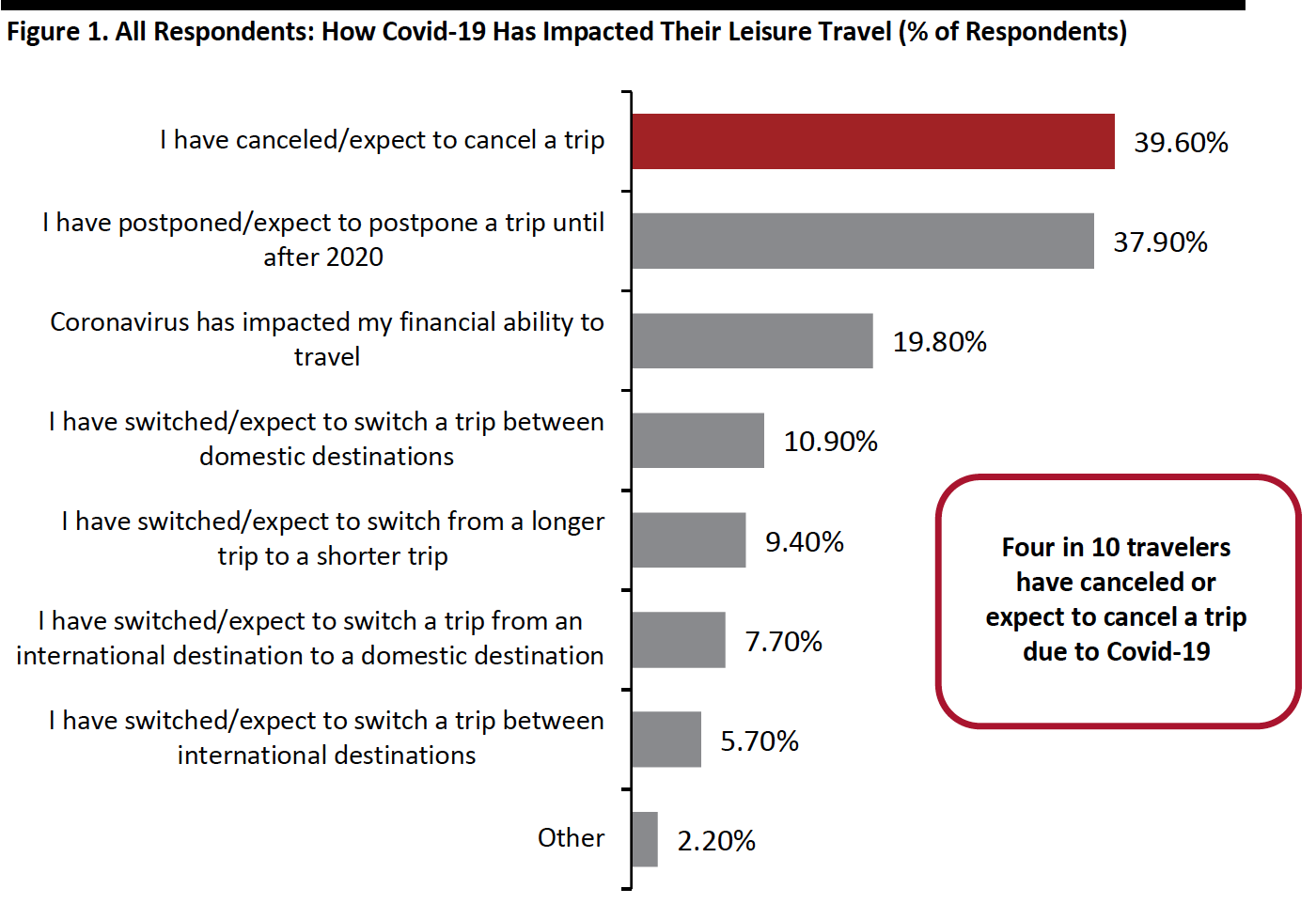 Base: 404 US Internet users aged 18+
Base: 404 US Internet users aged 18+Source: Coresight Research[/caption]
As leisure travel is largely on hiatus, tech companies are seeking to leverage existing livestreaming trends to engage customers and replace the real-life travel experiences with virtual ones. With the pandemic devastating the tourism industry, virtual travel platforms also aim to provide a source of income for tour guides and support local businesses that depend on tourism.
Amazon Explore: Platform Launch
On September 29, 2020, Amazon launched a new service called Amazon Explore that allows customers to take live virtual tours of various tourist destinations or cultural landmarks, shop local boutiques and learn DIY skills, guided by local experts.
Amazon Explore employs a personal local expert to hosts a one-on-one livestreaming session on location, enabled by one-way video and two-way audio for real-time communication. Only the host is on camera during the session and viewers can ask questions and make requests to the host through the audio. Users can also customize the session according to their interests.
Some of the experiences are shopping-enabled. Hosts can take customers to virtually visit local stores and markets, browse items and ask questions to shop owners. Customers can pay for an item through their Amazon account, which the host then ships to their home. Amazon reimburses the host for the item purchased.
According to Amazon, local experts come from a range of established tour guide companies, including Bamba (Mexico), Essence of Berlin (Germany) and Intrepid Urban Adventures (UK). The sessions vary from $10 to $200 and usually range from 30 to 90 minutes in length, with a cancellation notice period of 24 hours. The platform is currently in the beta phase and is available in the US through invitation only.
[caption id="attachment_117881" align="aligncenter" width="700"]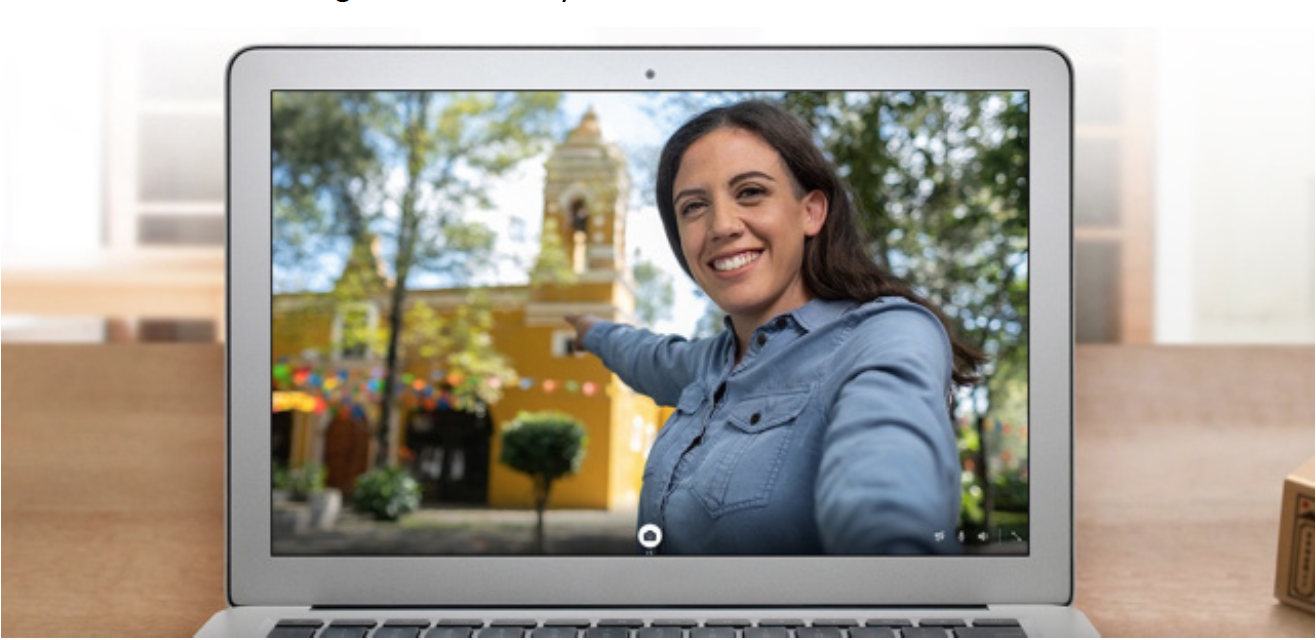 Local host interacting one-on-one with a viewer in real-time on Amazon Explore
Local host interacting one-on-one with a viewer in real-time on Amazon ExploreSource: Amazon[/caption]
Brand USA Teams Up with Airbnb
On September 29, 2020, Brand USA, an public-private partnership organization dedicated to marketing the US as a premier travel destination, partnered with Airbnb. Brand USA plans to use Airbnb’s Online Experiences platform, enabling stay-at-home users to explore a variety of tourist experiences available in the US. Brand USA has introduced five real-time online experiences that will be led by local hosts who will share warm and welcoming stories about US destinations. The experiences offered by Brand USA on the Online Experiences site include a virtual adventure to Hawaiian coral reefs, spoken word poetry with a Cleveland based poet and a southern food workshop with a Mississippi chef.
Airbnb launched its Online Experiences program in April 2020, allowing customers to travel virtually and have experiences with locals around the world livestreamed into their homes. This initiative was also aimed at Airbnb hosts, who comprise creatives, entrepreneurs, small business owners and tourist guides, as a means to continue earning during the pandemic.
[caption id="attachment_117882" align="aligncenter" width="700"]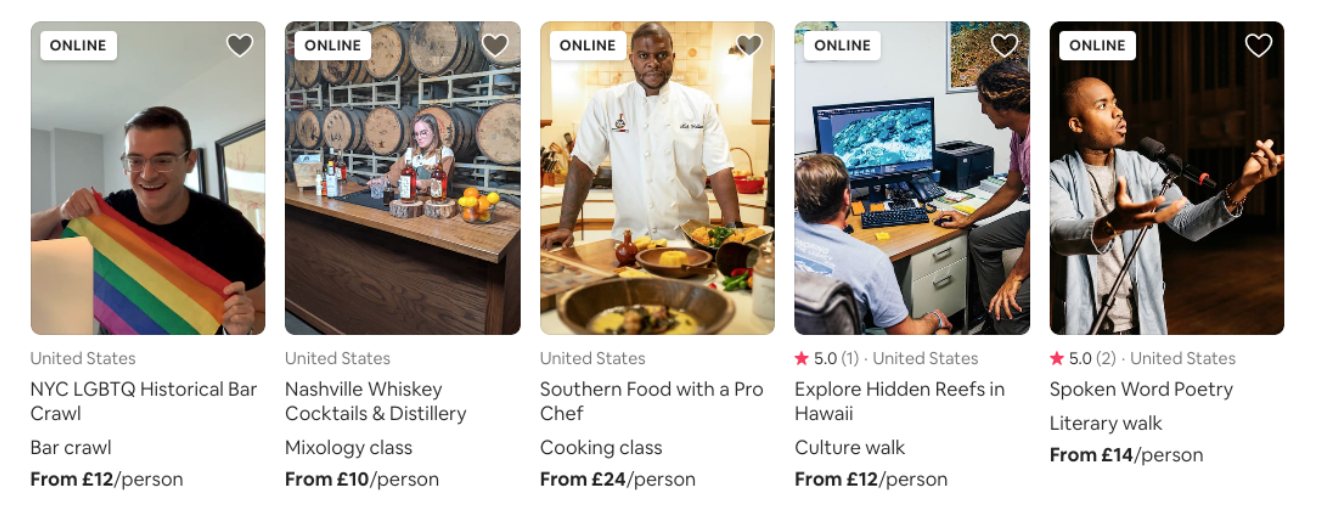 Online Experiences by Airbnb
Online Experiences by AirbnbSource: Airbnb[/caption]
Proxgy Launches Virtual Travel Experience in India
Proxgy, a virtual reality startup, enables its users to book a human avatar and navigate physical places through that proxy, providing a real-time immersive experience to viewers from the comfort of their homes. The dedicated assistant, known as the Proxgy, wears a proprietary smart helmet equipped with a 360-degree rotatable camera that is mounted on top and provides a live audio and video stream to users. The camera access is controlled by the users via a multidirectional joystick within the Proxgy user app. Viewers can communicate with their Proxgy via two-way audio and one-way video—users can ask their Proxgy to show them specific things through the audio stream or the Proxgy app.
Users can view the live feeds from a Proxgy helmet on their phone, though a virtual reality device, or cast the feed to bigger screens such as smart TVs. In addition to virtual tours, Proxgy can also perform dedicated tasks like shopping, real estate viewings and care for senior people. The technology is currently in the beta phase and the company is only accepting a limited number of users.
[caption id="attachment_117883" align="aligncenter" width="700"]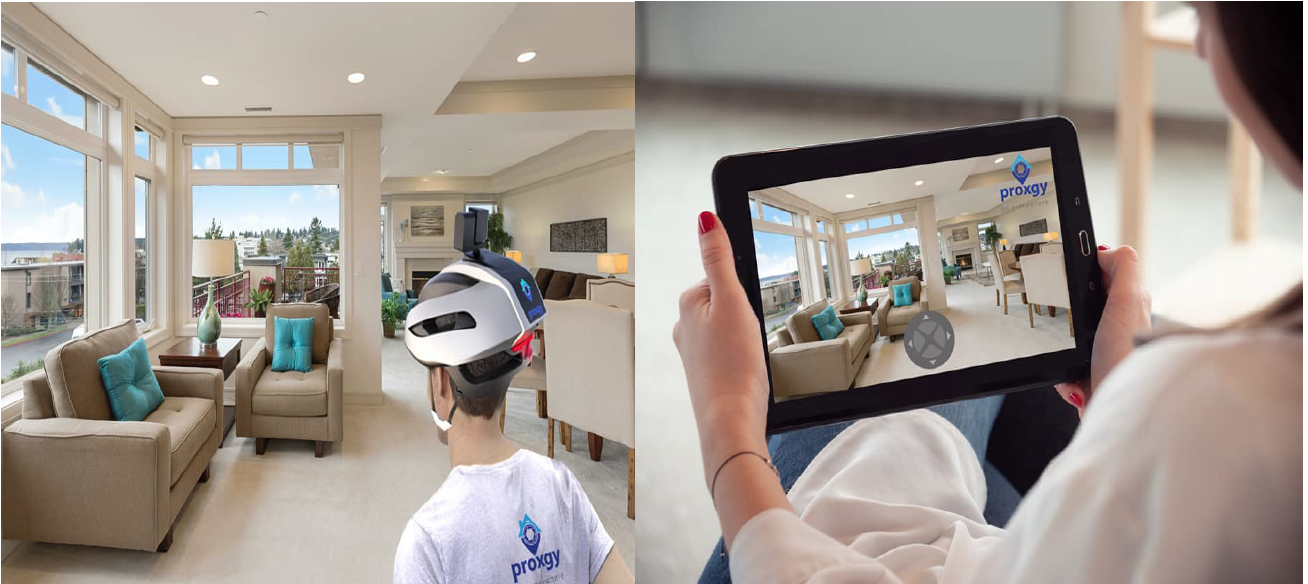 User controlling the view of camera mounted on top of Proxgy’s helmet using joystick on Proxgy app
User controlling the view of camera mounted on top of Proxgy’s helmet using joystick on Proxgy appSource: Proxgy[/caption]
What We Think
With the ongoing pandemic forcing people to spend more time at home, many services are moving online. In retail, we see this manifested in experiential e-commerce, which includes a wide range of online services and interaction through channels such as livestreaming.
Virtual travel through interactive platforms has come as a welcome refresher for those longing to explore the world from within their home. Virtual travel platforms are also invigorating real-world tourism as they provide a preview and understanding of tourist attractions through interactive visual content, which can stir up consumers’ curiosity and inspire them to visit those places in-person once leisure travel opportunities return.
Implications for Tour Companies
- Companies should view these experiences as marketing opportunities to encourage real-world trips later down the line, rather than trips in themselves.
- Travel and tour companies should seek opportunities to team up with virtual travel platforms to boost customer engagement and drive post-crisis spending on trips to their destinations.
- Tour operators can broaden the current offerings of tech companies by connecting them with more hosts and expanding the number of tourist attractions they currently cover. As the pandemic subsides, customers may opt to visit the tourist locations they explored and enjoyed virtually, which is likely lead to increased bookings at the associated tour operators for tours, activities and experiences.